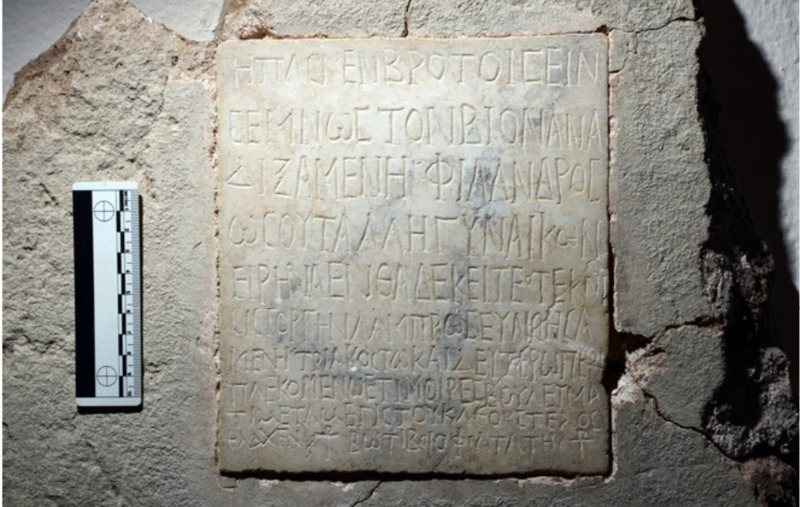Funerary inscription for Eirena
Translation:
Her among all mortals
Augustly spent her life
Loving her husband
As no other woman.
Eirena, who lies here,
Brought love brightly to her children
In her thirty-second cycle,
According to the desire of the Fates,
She obtained her end with great honor,
Much loved by Botis the Boetian
This inscription is from the late imperial period, about fourth to fifth century AD. It is an epitaph for Eirena by her husband. We are not entirely sure who her husband is. The scholar Magnaro suggests the word Βωτιβοῖο in the last line should be read as Βωτι βοῖο, that is Botis the Boetian, representing an origin near Bordeaux or Austria. On the other hand, the scholar Perin suggest that it is a transliteration of the Latin name Votivus. Either one would be interesting, given that the epitaph is written in Greek. Manganaro, noting the form of Eirena over Eirene, suggests that the wife is Jewish, while noting that the husband is Christian, given the christograms (chi-rhos) on the last line. The question for us is why did they use Greek? Perhaps, Greek had become the language of prestige at the time, with the wealthy importing Greek slaves to educate their children, and so it was a symbol of status to have an epitaph in Greek. Or perhaps Eirena and her husband came from different linguistic worlds, and used Greek as a shared language, to bridge their perceptions. Eirena had grown up learning Greek in her household, her ancestors taken as slaves after the Judean Wars. Maybe they were taken to Greece, where they eventually earned their independence, and Eirena came to Sicily to attempt to build a better life for herself. Maybe she met a French trader or a Roman aristocrat, fell in love, had children, and died much beloved by her family.

